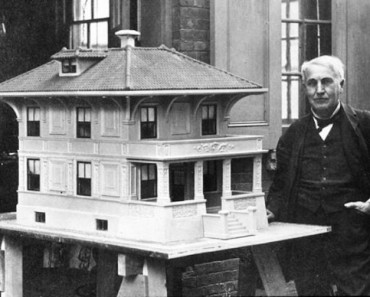As you are reading this article, try to pay attention to how many times you have to stop and reread sentences because you lost your concentration.
Are you still concentrating?
With so many distractions and other obstacles standing in our way of being able to concentrate on the tasks at hand, it can be difficult to focus on the work we need to get done and achieve optimal productivity.
This is your complete guide to increase your concentration and do better work. These five things should help you focus and cross things off your to-do list in no time at all.
Erase distractions
Improving concentration doesn’t always mean you have to practice something new every day in order to stimulate your brain. Sometimes getting to a point where you can focus better on the people and tasks around you is as simple as getting rid of the external distractions constantly getting in your way.
Distractions are everywhere these days. Our phones are always buzzing, our email inbox is always pinging and we just don’t know how to balance work with sufficient breaks. All these things are completely real, and completely avoidable, barriers to productivity and long-term success.
Put that phone on silent. Set specific times for checking email. Try and only keep one tab open on your browser at a time. Take breaks every hour, or when you feel your focus start to shift. With fewer distractions tempting you to break your concentration, you will be able to get much more done.
Meditate every morning
You may have heard before that meditation can help you improve your concentration, but do you know why? Think about it this way: if you don’t practice meditation, and try to sit still for a few minutes, it’s probably pretty difficult, isn’t it? Of course it is. You aren’t used to it.
However, if you take a little time each day – as little time as ten minutes or less – and practice sitting still, you’ll start to notice that it isn’t as hard as you once thought it was. The more you practice concentrating on the things around you, the better at concentrating you will become. It’s really that simple.
Meditation might not be what you think it is. You don’t have to sit in a dark room with all the shades drawn listening to calming music, surrounded by candles that smell like Christmas. It can be as simple as doing a little deep breathing while sitting still at your desk for five minutes with your eyes closed.
Take notes
That’s right: literally get out a notebook and pen and jot things down as you read, see or hear them. It isn’t a practice only reserved for students trying to ace an upcoming midterm exam. If you have a difficult time concentrating, making it a point to write down what you’re reading or hearing.
Showing that you understand the information you are trying to concentrate on well enough to take notes on its most important points is a sign that you are doing a better job concentrating not just on the words on a page or the sound of someone’s voice, but what all the words actually mean.
Take notes on paper instead of typing them out on a computer. This automatically makes you pay more attention to what you are actually writing. If you let your mind wander, you won’t be able to record anything. Use this as a training tool to help you keep your focus from wavering.
Engage in regular physical activity
If you needed another reason to motivate yourself to start working out, here it is. What does exercise have to do with our ability to concentrate? A lot, actually. Working out increases blood flow to the brain, bringing in more oxygen and glucose, which you need in order to think clearly and focus.
You don’t have to start training for a marathon or anything to that extreme. Improving concentration can take time, and so can easing yourself into a fitness routine. Start slow and start small, and as the weeks go on, increase your activity until you’re working out for at least 150 minutes per week.
There isn’t just one specific type of exercise that has a positive effect on our brains and our ability to concentrate. Any aerobic exercise, which includes workouts like running, biking, swimming, dancing and the like, counts. You can try one or a combination of activities to get the blood flowing to your brain. Whatever makes you comfortable.
Learn how to prioritize
Have you ever been in the middle of working on a project, and all of a sudden found yourself jumping to something completely different because you just remembered it needed to get done? This is what happens when we don’t prioritize. It’s harder for us to focus when we do things out of order.
We aren’t always given strict deadlines for tasks, which can make prioritizing more difficult. It’s okay to set your own deadlines. If you make up your own reasonable due dates, you might be able to trick your brain into concentrating better on the work you’re trying to convince yourself is due sooner than it actually is.
Instead of trying to focus on something that isn’t do next week while you’re worried about another thing that’s due two days from now, focus first on what is due first, and then move on to what’s due later. You might not want to do that second thing first, but it’s more important. Once you finish it, you will be much better able to focus on something else.
It isn’t really that hard to increase your concentration. Taking the steps above, in whichever order you choose, might be the right formula you need to focus better and stay productive.
Distractions will try and break our focus, but things like meditation, note-taking, exercising and prioritizing can help, in a way, train our brains and change our environments so we can concentrate. Do you need to read any part of this article again? Don’t forget to take notes.







